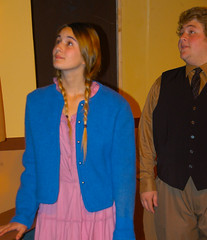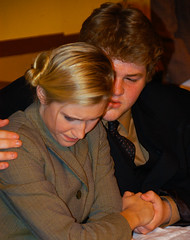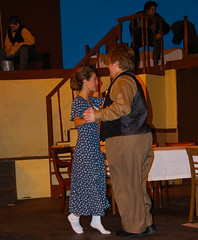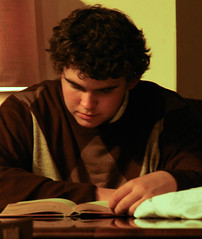On her thirteenth birthday, June 12, 1942, a gifted Jewish girl began to write a diary while hiding from Nazi occupiers with her parents, sister and four others in a sealed annex in Amsterdam. Over twenty-five months of excruciating incarceration, Anne Frank documented her experience with vivid detail and insight--the fear of arrest, the tedium of captive life, the dream of fresh air and friends, the sensations of her budding womanhood, and the often-tense relationships swirling around her.
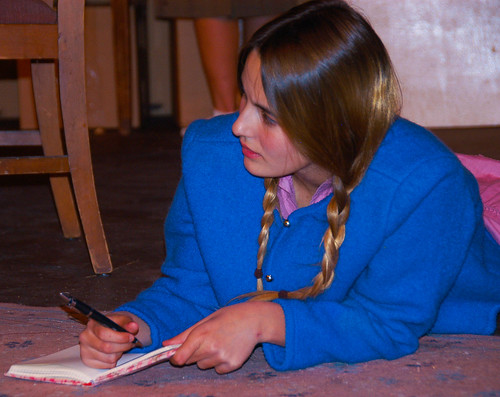
On March 29, 1944, Frank heard a radio transmission by an exiled Dutch government official on a London-based radio station calling for letters and diaries of everyday life under German occupation to be saved for later publication. This inspired her to--someday--publish a book following liberation. When the Gestapo ultimately stormed the annex, arresting our long-suffering heroes for deportation to German concentration camps, their accomplice--Miep Gies--collected Anne's writings and delivered them to Anne's father, who became the sole survivor of the war; (Anne died of typhus infection at
Bergen-Belsen just days before that hideous camp was liberated by British forces, and just weeks before her 16th birthday.)
In the spring of 1946, Anne's writings came to the attention of Dutch historian Dr. Jan Romein, who wrote a local newspaper article that--in turn--caught the attention of a local publishing house that printed an edited version in June, 1947; (Anne's references to her emerging sexuality had been toned down.) The success of the book led to an English translation entitled
Anne Frank: The Diary of a Young Girl in 1952 that became a sensational, international best-seller. The success of Anne's writing prompted screenwriters Frances Goodrich and Albert Hackett to write
The Diary of Anne Frank, the play Proctor Drama performs Friday and Saturday at 7:00 PM.
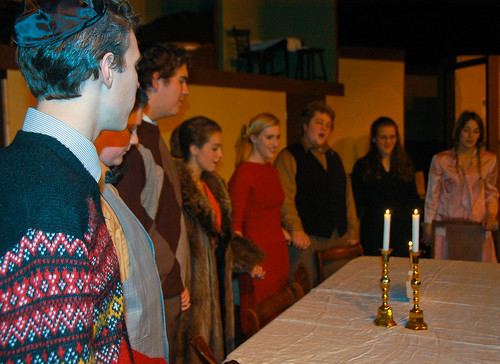
Anne Frank: The Diary of a Young Girl is widely acclaimed to be one of the most influential books of the Twentieth Century. Jan Romein, the Dutch historian who first sensed its power wrote, in 1946, "This apparently inconsequential diary by a child, this "
de profundis" stammered out in a child's voice, embodies all the hideousness of fascism, more so than all the evidence of
Nuremberg put together." (Wiki)
This is not an easy play to experience; the actors bring characters to life whom we come to know and love. Anne's mother disapproves of her childish bravado evidenced in early scenes, but we fall for her. She is kind, insightful, honest and thoroughly human. She is also terrified, as are we.
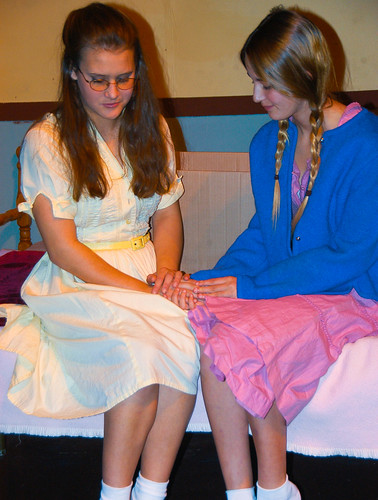
The smallest pleasure is a treasure: a glimpse of a tree, or the moon through a window... an innocent kiss... A gift of high-heel shoes by Miep (the collaborator with outside access) is too much to believe!
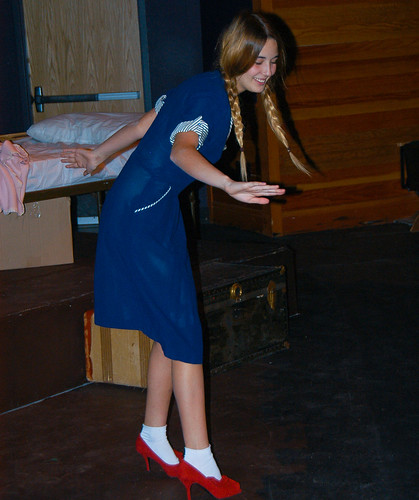
News of the Allied Invasion causes hopes to soar; the dream of freedom had all but faded. So the arrival of German police and arrest is shocking, unexpected and brutal, (even to those of us who have read the book!)
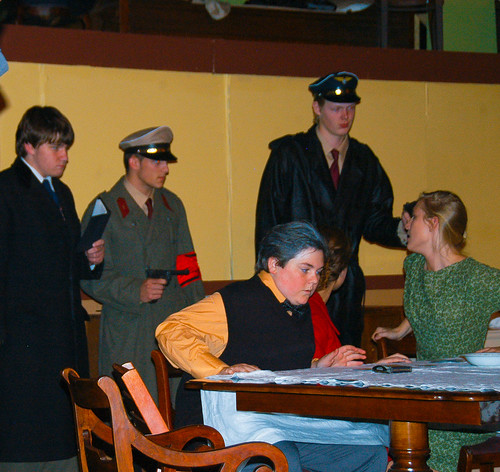
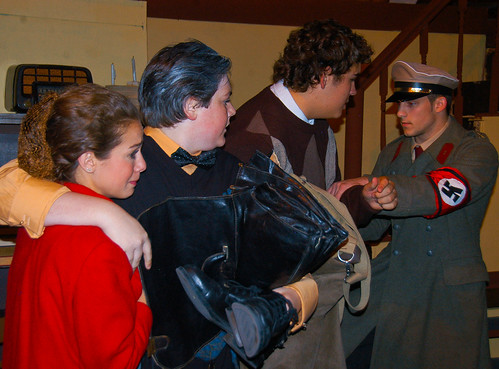
Reflecting on the power of this show, Terry Stoecker observes, "For all of the force of the Nazis--for all of their evil, institutionalized brutality and racism--they could not keep a little girl from writing a diary that has changed the world."
Reserve tickets by calling Alex Estin at 735-6870.

















